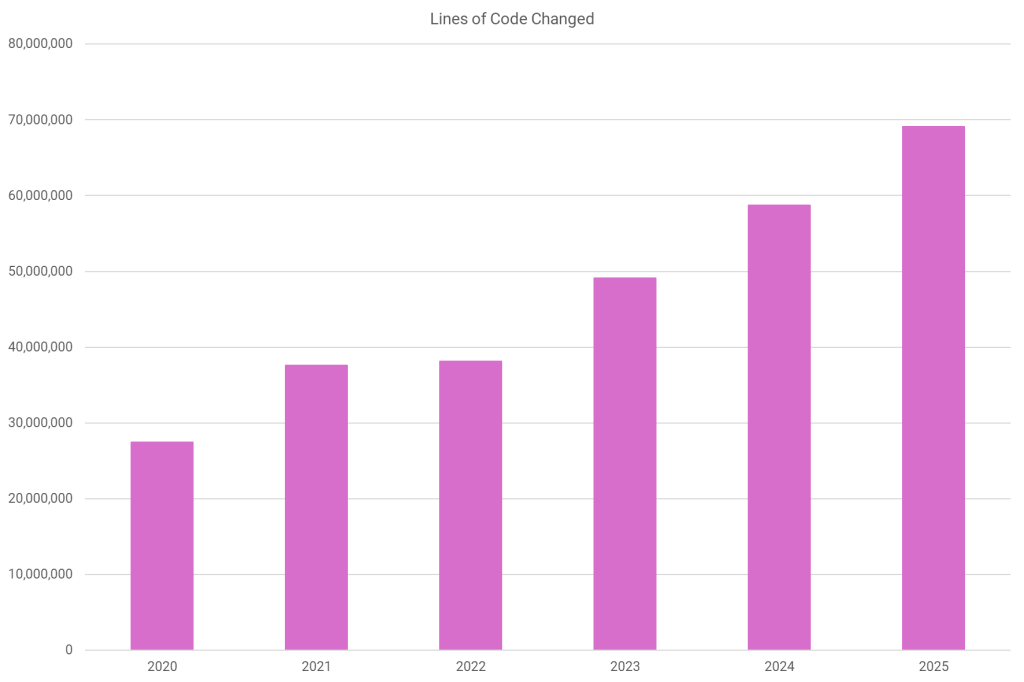As artificial intelligence (AI) continues to integrate into software development, a recent survey reveals that while many developers are embracing AI tools, a significant majority find themselves spending considerable time refining the code these tools produce.
✅AI Tools: Widely Adopted but Not Without Challenges
The 2025 State of Web Dev AI report, based on responses from over 4,000 developers, indicates that AI has become a staple in many developers' workflows:
69% use AI tools to generate or modify code multiple times a week.
59% believe AI tools enhance their productivity.
However, 76% report needing to refactor at least half of the AI-generated code before it's production-ready. In the case of software development, we are now rapidly accelerating the rate of change in our codebases. In 2025, the rate of change is predicted to be almost double the pre-AI (2021) number.
Business Insider+3DEV Community+3LinkedIn+3
Common issues prompting refactoring include poor readability, inconsistent variable naming, redundant code, and functionality errors.

✅User Satisfaction Varies Across AI Tools
Developers' experiences with AI tools differ significantly:
Claude, Supermaven, and Cursor users report higher satisfaction levels.
In contrast, users of Google Gemini, JetBrains AI, and Meta’s Llama express lower satisfaction.Ground News
For instance, 65% of Claude users feel positively about the tool, whereas only 37% of Google Gemini users share that sentiment.
✅Common Pain Points with AI-Generated Code
Developers highlight several challenges when working with AI-generated code:
Hallucinations: AI models sometimes produce code that appears plausible but is incorrect.
Context Loss: AI tools may forget previous interactions, leading to inconsistent outputs.
Intrusive Suggestions: Some tools offer suggestions that disrupt the developer's workflow.
Lack of Deep Integration: AI assistants may not fully integrate with development environments, missing out on context like file movements or renaming.


🧠The Path Forward
While AI tools offer significant potential to streamline coding tasks, they are not yet replacements for human developers. The need for vigilance, critical assessment, and manual refinement remains paramount. As AI continues to evolve, developers must adapt, ensuring they harness these tools effectively while maintaining code quality and integrity.




